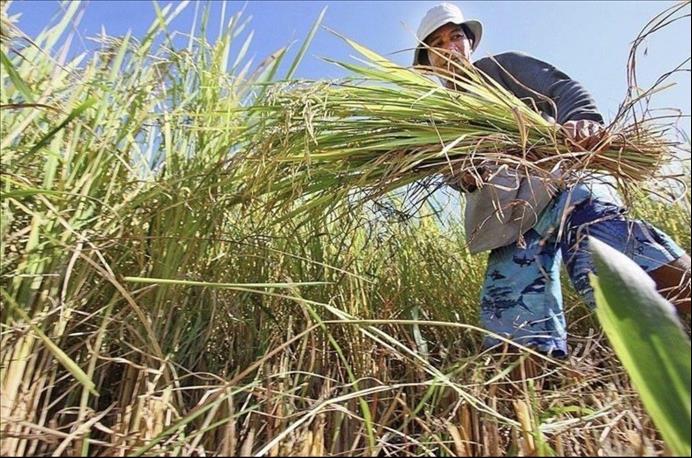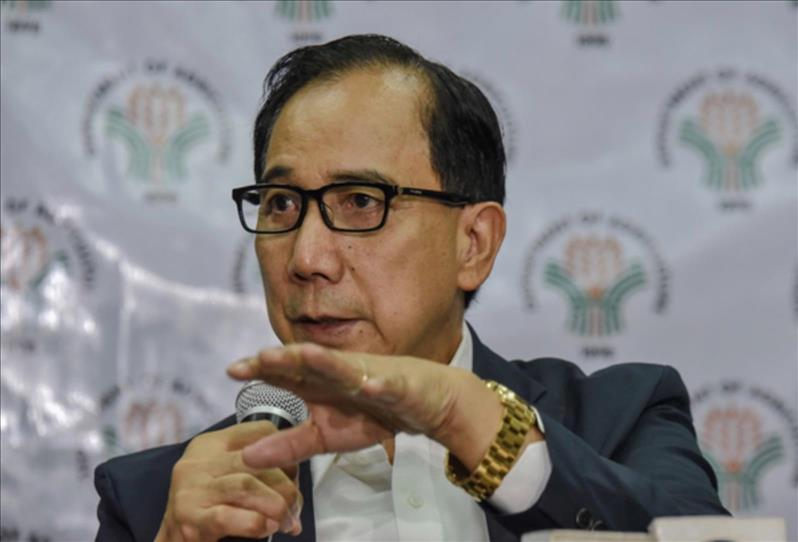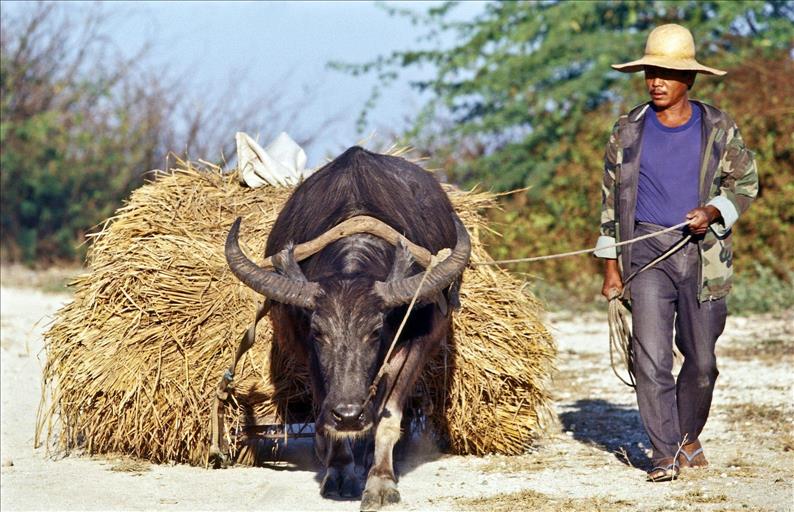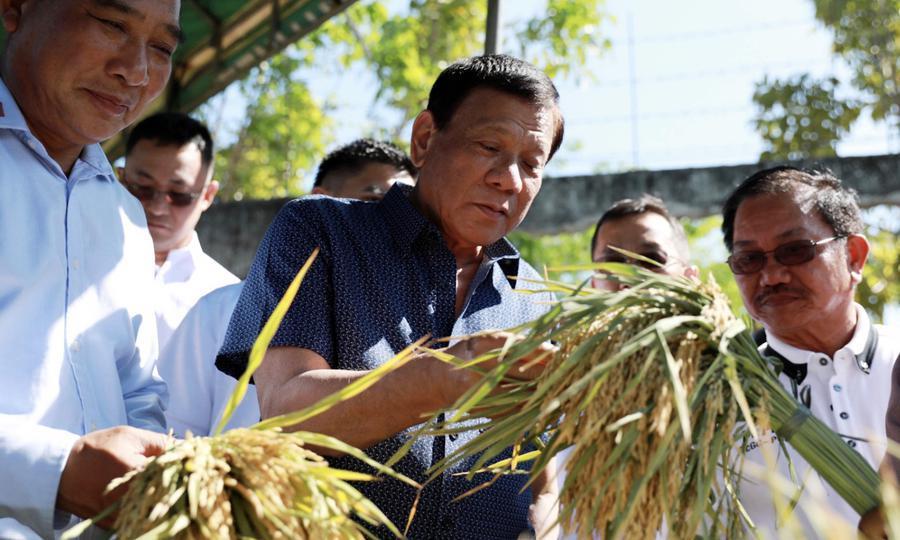
Duterte's rice policies sow confusion and doubt
(MENAFN- Asia Times) Philippine President Rodrigo Duterte is again at loggerheads with his government's top technocrats, this time over the nation's floundering but crucial rice industry.
Mixed messaging between the national leader and his economic deputies on rice imports is raising new regulatory risks and confounding market expectations, significantly at a time the economy is losing steam.
The Philippines recently surpassed China as the world's biggest rice importer, an upshot of the government's move earlier this year to remove quantitative restrictions on imports of the staple.
The subsequent surge in cheap imports has hammered Filipino farmers, driving thousands into bankruptcy. Local reports indicate 200,000 farmers have abandoned their farms, while over 4,000 rice mills have shut down since the policy was implemented earlier this year.
Duterte's administration has overseen a near quadrupling of rice imports from 800,000 to three million metric tons from mid-2016 to the end of this year, the USDA Foreign Agricultural Service estimated in a report released this month.
The surge in imports has far exceeded the Philippines' estimated annual shortfall of 1.9 million metric tons.

A Filipino rice farm at harvest season. Photo: Twitter
The situation has been driven by Duterte's implementation in February of the so-called Rice Tariffication Law, a measure that aimed to ease surging inflation which nearly hit 7% in late 2018, the highest reading among Southeast Asia's large economies.
Cheaper imports have driven down prices of local non-milled rice, further impacting a deteriorating agricultural sector which state statistics show employs more than five million families nationwide.
Duterte, elected in part on a populist pro-poor campaign message, acknowledged his government's inability to uplift local farmers in recent local media comments.
'What I am saying to our people is that do not despair, we can always correct a wrong. I apologize to you if the result you wanted to get during the early days of my administration has been well delayed or not good, not to your expectations…I will immediately do something about it,' Duterte said on November 16.
'In the months of harvest, buy it (rice). Don't import too much. Do not allow import. The government will not import. Hold it off until theirs [local farmer's rice] is bought' he added in local language comments that have since confounded farmers and policymakers alike.
Duterte appeared in the same comments to order the rice tariff law's suspension to ease pressure on farmers, effectively negating a policy aimed to manage inflation and boost food security. He also called broadly on his deputies to do more to help farmers.
His government's messaging has been mixed on the issue. Finance Secretary Carlos Domniguez III recently said that the government is not inclined "to repeal, revise or suspend the Rice Tariffication Law." "We are confident that this is the best means to move our agriculture forward and foster competitiveness," the finance chief said.
In an apparent communication breakdown, only days after Duterte's apparent order to suspend the tariff law, Agriculture Secretary William Dar denied there was any policy shift, telling reporters, "I have no knowledge on this."

Philippine Agriculture Secretary William Dar in a file photo. Photo: Twitter
Farmers groups have not been amused by the policy confusion.
'We want to ask the President if this is just another joke or if this is the truth,' said Leonard Montemayor, president of the Federation of Free Farmers, a trade group. 'We've been disappointed by so many false hopes that we cannot just take the president's statements at face value.'
When inflation surged, public sentiment quickly turned on the president, whose approval rating late last year dipped by 11 points to its lowest on record. Concerned about voter discontent ahead of pivotal mid-term elections, Duterte's technocrats have since implemented various measures to bring down prices.
Those include the Rice Tarrification Law, which ended government-designated import monopolies in favor of a free-for-all import regime.
Under the law's new regime, any trader may import rice so long as they pay between 35-45% in import taxes, revenues supposedly earmarked to help affected farmers, including through new state investments in irrigation, warehousing and rice research.
So far the Duterte administration has only provided 15,000 peso ($300) loans to small-scale farmers owning one hectare of land or less, and promised to give 5,000 peso ($100) 'cash gifts' to affected agrarians by the end of this year.
Critics, however, say the measures have not been sufficient to address widespread rural suffering.
According to the Philippine Statistics Authority (PSA), the price of non-milled rice recently fell to its lowest level in eight years, while so-called farm-gate rice prices fell to 15.35 pesos per kilogram, 27% lower than in 2018.

A Filipino farmer transports rice paddy with his water buffalo in Badoc, Ilocos Norte province, in a file photo. Photo: iStock/Getty Images
Bantay Bigas, a local civil society group which monitors rice prices, claims that non-milled rice prices recently fell as low as seven pesos per kilogram in rice-growing Isabela and Tarlac provinces.
Analysts and experts say rice prices need to be 15 pesos per kilogram or higher for Filipino farmers to break even.
Senator Francis Pangilinan, chairman of law-related committee, recently estimated that the removal of quantitative restrictions and the resultant flood of cheaper imports has cost the agriculture sector nearly 60 billion pesos ($1.2 billion) since the policy was implemented this year.
The Philippine Rice Research Institute, a state agency, has put the losses slightly higher at 61.8 billion pesos.
Aggrieved farmers are predictably voicing their discontent. As many as 50,000 farmers led by advocacy groups such as Bantay Bigas and the National Federation of Peasant Women (Amihan) recently signed a petition calling for the rice tariff law's repeal.
'We strongly hope that the House of Representatives heeds the noble demands of the Filipino people for the attainment of national food security based on self-sufficiency and self-reliance, free from import-dependence and grounded on strengthened tenurial rights of rice farmers in the country," the petition, which was recently submitted to the House of Representatives, said.
'The very farmers that feed Filipinos are treated like beggars by the government,' it added.
The signatories have advocated for an alternative bill, known as the Rice Industry Development Act, which calls for a comprehensive and coordinated agricultural policy that provides basic financial, logistical and protective assistance to local farmers. Neither Duterte nor his deputies have commented on the alternative proposal.

Legal Disclaimer:
MENAFN provides the
information “as is” without warranty of any kind. We do not accept
any responsibility or liability for the accuracy, content, images,
videos, licenses, completeness, legality, or reliability of the information
contained in this article. If you have any complaints or copyright
issues related to this article, kindly contact the provider above.

















Comments
No comment